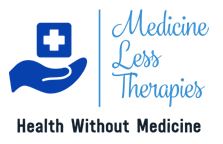Science of Naturopathy:
- Naturopathy lacks an adequate scientific basis,and it is rejected by the medical community.
- Some methods rely on immaterial “vital energy fields”, the existence of which has not been proven, and there is concern that naturopathy as a field tends towards isolation from general scientific discourse.Naturopathy is criticized for its reliance on and its association with unproven, disproven, and other controversial alternative medical treatments, and for its vitalistic underpinnings.
- Natural substances known as nutraceuticals show little promise in treating diseases, especially cancer, as laboratory experiments have shown limited therapeutic effect on biochemical pathways, while clinical trials demonstrate poor bioavailability.According to the American Cancer Society, “scientific evidence does not support claims that naturopathic medicine can cure cancer or any other disease”.
- According to Britt Hermes, naturopath student programs are problematic because “As a naturopath [student], you are making justifications to make the rules and to fudge the standards of how to interpret research all along the way. Because if you don’t, you’re not left with anything, basically”.
- In 2015, the Australian Government’s Department of Health published the results of a review of alternative therapies that sought to determine if any were suitable for being covered by health insurance; Naturopathy was one of 17 therapies evaluated for which no clear evidence of effectiveness was found.
- Kimball C. Atwood IV writes, in the journal Medscape General Medicine,
- Naturopathic physicians now claim to be primary care physicians proficient in the practice of both “conventional” and “natural” medicine. Their training, however, amounts to a small fraction of that of medical doctors who practice primary care. An examination of their literature, moreover, reveals that it is replete with pseudoscientific, ineffective, unethical, and potentially dangerous practices.
- In another article, Atwood writes that “Physicians who consider naturopaths to be their colleagues thus find themselves in opposition to one of the fundamental ethical precepts of modern medicine.
- If naturopaths are not to be judged “nonscientific practitioners”, the term has no useful meaning”.
- A retired licensed naturopathic doctor, Britt Marie Hermes, states that “any product that is sold by a naturopath almost guarantees that there is no reliable scientific data to support whatever health claims are made,and that while some naturopaths claim to only practice evidence based medicine, “the problem is, all naturopaths in an accredited naturopathic program are required to extensively study homeopathy, herbal medicine, energy healing, chiropractic techniques, water therapy” and other pseudoscientific practices.
- According to Arnold S. Relman, the Textbook of Natural Medicine is inadequate as a teaching tool, as it omits to mention or treat in detail many common ailments, improperly emphasizes treatments “not likely to be effective” over those that are, and promotes unproven herbal remedies at the expense of pharmaceuticals.
- He concludes that “the risks to many sick patients seeking care from the average naturopathic practitioner would far outweigh any possible benefits”.
- The Massachusetts Medical Society states, “Naturopathic practices are unchanged by research and remain a large assortment of erroneous and potentially dangerous claims mixed with a sprinkling of non-controversial dietary and lifestyle advice
